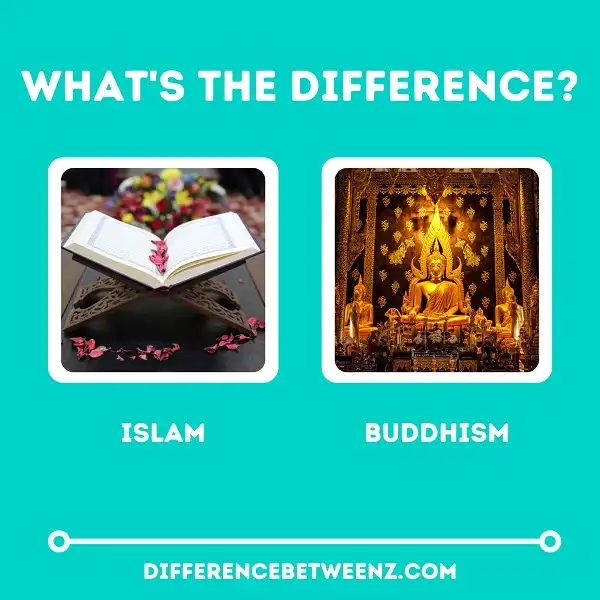Are you curious about the differences between Islam and Buddhism? This blog post will explore some of the key similarities and differences between these two religions. We’ll start with a brief overview of each religion, followed by a discussion of their beliefs and practices. By the end, you’ll have a better understanding of how these faiths differ from one another.
Who is Islam?
Islam is a religion that began in the seventh century in Arabia. It is based on the belief in one God, and the prophet Muhammad is seen as the final prophet. Muslims follow the Quran, which contains guidance on how to live a good life. Islam teaches that people should behave with justice, compassion, and generosity. The goal of Islam is to achieve peace through submission to God. There are around 1.8 billion Muslims in the world, making it the second-largest religion after Christianity. Islam is the fastest-growing religion in the world, and its popularity is projected to continue to increase in the coming years.
Who is Buddhism?
Buddhism is a religion and philosophy founded in India by Siddhartha Gautama, who is known as the Buddha, in the late 6th century BCE. Buddhism spread throughout Asia and became one of the major religions in the world. Buddhism is based on the Four Noble Truths, which are that suffering exists; that suffering has a cause; that suffering can be ended; and that there is a path to the end of suffering. Buddhism teaches that the way to end suffering is through ethical conduct, meditation, and wisdom. Buddhism has a wide variety of traditions, schools, and practices, and it is divided into two major branches: Theravada Buddhism and Mahayana Buddhism. Buddhist teachings have had a significant impact on many other religions, philosophies, and cultures.
Difference between Islam and Buddhism
Islam and Buddhism are two of the world’s major religions. Islam is a monotheistic Abrahamic religion, while Buddhism is a nontheistic dharmic religion. Islam teaches that there is only one God and that Muhammad is his messenger. Buddhism teaches that there is no one god, but that individuals can achieve Nirvana through their own effort. Islam Place emphasizes individual submission to God, while Buddhism emphasizes individual spiritual development. Islam is practiced mainly in the Middle East, North Africa, and parts of Southeast Asia, while Buddhism is prevalent in East Asia. Islam has approximately 1.8 billion followers, while Buddhism has around 500 million followers worldwide.
Conclusion
In conclusion, it is clear that there are many differences between Islam and Buddhism. While both religions share some common beliefs, such as the existence of karma and reincarnation, they differ in terms of their approach to salvation, teachings on God, and understanding of the self. It is important to understand these distinctions when exploring different faiths, in order to gain a better understanding of the world around us.


